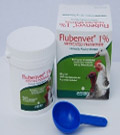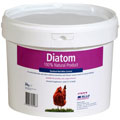Vaccination can be a good way to prevent or reduce the effect of a specific disease in poultry although it is not a substitute for good husbandry. It can be helpful to understand disease classifications to understand what you can protect against by vaccinating chickens: There are Viruses, Mycoplasma, Bacteria, Fungi, Protozoa, and Parasites.
- Viruses can be prevented through cleanliness and vaccination.
- Organisms of all other types of diseases can be killed by chemicals that kill cells, specifically those of micro-organisms.
- Vaccines can be effective in reducing disease in birds, but birds that are exposed to the disease usually still become infected with it and can pass on disease organisms to other birds.
Commercial poultry of course are vaccinated to protect them against a multitude of diseases but commercial operations rarely keep birds past 2 years of age and usually operate an all-in all-out policy to minimise the risk of infection.
As backyard chicken keepers, we often add birds of different ages gradually to our flock. These have different levels of inhereted immunity and older birds could be carriers of diseases. To add to the risk of picking up a disease, some of us buy birds from shows or auctions where many birds have been brought together, increasing the risk of picking up disease. A few of us take birds to shows where they could potentially pick diseases up before bringing them home too.
Vaccination, is not usually an option for small breeders and owners of small flocks since most vaccines come in vials of a minimum of 500 or 1000 doses. Unfortunately, small flocks of birds can suffer from diseases which could be controlled by vaccination.
Most Hybrid chickens come vaccinated. This is because many birds are usually bought and raised at the same time making vaccination more cost effective.
Mixing vaccinated and unvaccinated birds isn’t recommended, especially when they are young. A common mistake is mixing vaccinated hybrids with unvaccinated pure breeds. Whilst vaccinated birds won’t show the clinical signs of a disease like Marek’s, they can still carry it and spread it to unvaccinated birds. It is impossible to work out which birds are the disease carrying birds, so you’ll go on spreading the virus around the unvaccinated birds in your flock.
Should I vaccinate chickens or not?
Vaccination can only be done at a young age. Most vaccines have to be given during the first few weeks of a chick’s life. If you are hatching reasonable numbers of birds, it can be more cost effective, vaccines aren’t that expensive unless you’ve only got a handful of birds to vaccinate.
Deciding whether or not to vaccinate is a difficult choice. What is the likelihood that your birds will be exposed to a disease? How much will it cost to buy the vaccines and equipment with which to administer them (or to ask a vet to do it for you)? If new birds are never introduced and the birds that leave never come back, the chance of picking up a disease is a lot less. You may decide this is the best way to proceed and not to vaccinate.
Some breeds like the Sebright and Silkie are highly susceptible to Marek’s disease. One or two suppliers (who keep very large numbers of birds) that I have come across do vaccinate their birds but most, do not.
Personally, I now hatch all of my own eggs to ensure I avoid most diseases, although I do admit to bringing in vaccinated hybrid layers in. These are kept in a different part of the garden so aren’t mixing with my pure breeds.
If you practice good husbandry and ensure you do not bring new birds in that may also carry disease then you stand a good chance of keeping a healthy flock.
A vets view on vaccinating backyard chickens can be found in this article from Kenny Nutting BVet Med MRCVS on the poultrykeeper website.


